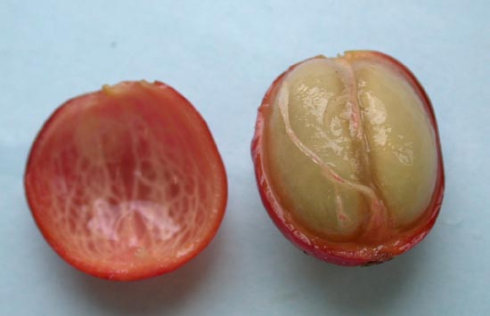Magic "Blackwater"

In the eighth century AD, there was a magical "black water" called "Qahwa" in the Arabian Peninsula, which was said to restore physical strength, exuberant spirit, and no intention.
The tenth century Muslim philosopher and Iranian doctor Avicina Ibn Sina,980-1037 recorded a plant from Yemen called Bunchum, which is said to be something like coffee.
As early as the sixth century AD, coffee spread from Africa to Ethiopia (ancient Abyssinia) to the Arabian Peninsula. at first, only a few Arab monks knew its magical use and were regarded by Muslims as the gift of Allah.
Abu Dar, a Muslim, in 1578. In Ambudar Kadry's book the Origin of Coffee, the story of the discovery of magical red fruit by the Arab doctor Omar, whose hometown is in Mocca in Yemen in the Arabian Peninsula, is first recorded.
According to historical records, the tribes of Ethiopia and Kenya in East Africa invaded the southern tip of the Arabian Peninsula in the fifth century AD and occupied Yemen for a century before being driven out by the Persians, which is now Iran. At that time, the ancestors of East Africa had already started to drink drinks made from red fruits of "Kaffa" mixed with green leaves, and these African soldiers on expeditions carried coffee balls wrapped in animal fat with them to refresh themselves and increase their combat effectiveness.
Later, with the rise of the Arab world, the Ottoman Turkish Empire spanned Europe, Asia and Africa. The Turks invaded Europe and passed on this magical "black water" and red fruit to the Europeans.

Important Notice :
前街咖啡 FrontStreet Coffee has moved to new addredd:
FrontStreet Coffee Address: 315,Donghua East Road,GuangZhou
Tel:020 38364473
- Prev

Starbucks' success in China is not only coffee but also sentiment.
Since entering China in 1999, Starbucks has set off an upsurge of drinking coffee. Wherever the trend goes, Starbucks is strong, from Beijing, Tianjin, Shanghai, Chengdu, Guangzhou, Wuhan all the way to Zhengzhou. In the words of Shi Dongwei, vice president of public affairs at Starbucks Greater China, Starbucks successfully boosted the coffee market in China, where tea culture prevails.
- Next

The aroma of coffee in Luxembourg
When it comes to romance, the first thing that comes to mind is France and Italy, which are famous for their romance. Of course, this is what I thought before I came to the country of Luxembourg. When I visit Luxembourg, when I say the word romantic, the first country that comes to mind becomes Luxembourg.
Related
- How did the Salvadoran coffee industry develop in Central America?
- What exactly does the golden cup extraction of coffee mean?
- The Origin of Coffee flower
- [2023 Starbucks World Earth Day] there are more meaningful things besides free Starbucks coffee!
- What kind of coffee is there in Spain? 9 Flavors of Spanish Coffee
- Aromatic African coffee| Kenya's coffee culture and historical production area
- Liberica Coffee Bean knowledge: the characteristics of Liberian Coffee beans of the three original species of Coffee beans
- The origin and formula of Spanish latte introduces the taste characteristics of Bombon coffee in Valencia, Spain.
- How to adjust the solution of over-extracted coffee
- What is the tasting period of coffee beans? What is the period of coffee and beans? How should coffee wake up and raise beans?

